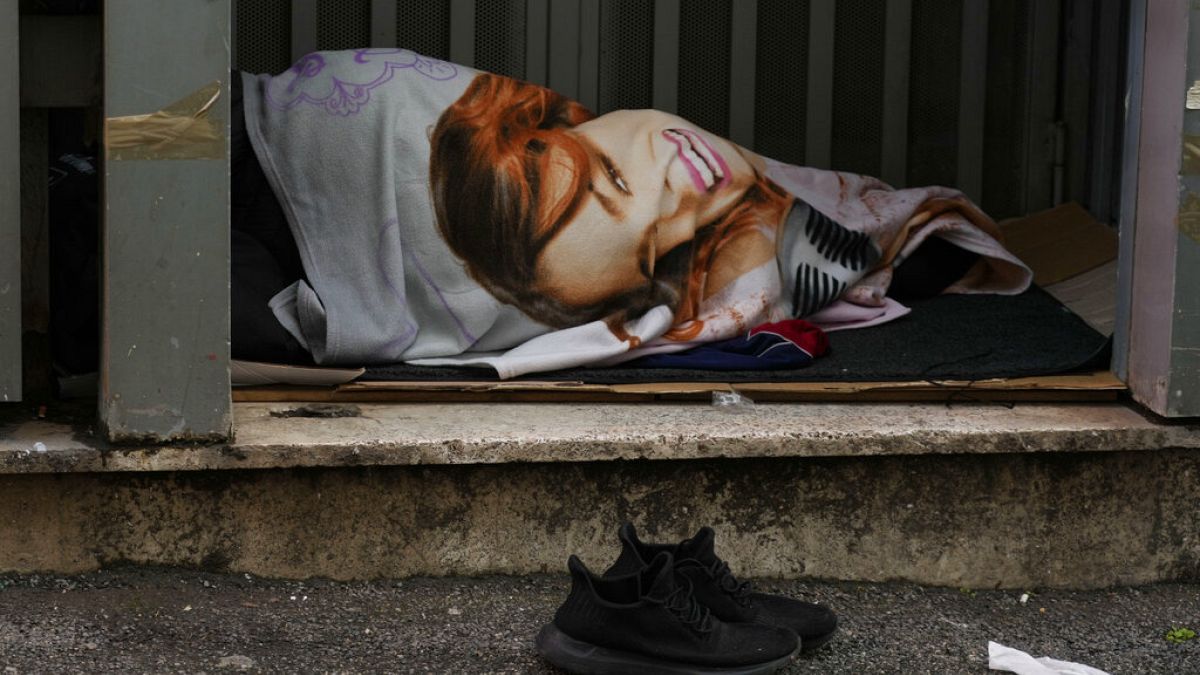Rome sets up two large tents to shelter the homeless this winter

Authorities in Rome have only erected two of the four large tents they’d promised to provide around 250 camp beds for the homeless this winter.
In the spring of 2024, the Rome City Council allocated €4.3 million for four giant tented shelters offering refuge during the winter months. One was to be between Termini station and San Lorenzo, one near Tiburtina station, one at Ostiense station, and another close to San Pietro station. Each was designed to accommodate up to 70 people daily, operating 24 hours a day.
Only two of the tents ready on the eve of the Jubilee
However, on the eve of the Jubilee, only two of them were ready for opening: the one near Termini station, close to the San Lorenzo district, which will eventually house 40 people, and the one at Piazzale dei Partigiani, near Ostiense station, with an investment of approximately one million euros.
“All four marquees will be built. They are proceeding according to plan and will be ready for the start of the Jubilee,’ the mayor of Rome, Roberto Gualtieri, insisted, referring to the marking of 2025, as a special year by the Vatican.
Rome has around 22,000 homeless people
In addition to the delays, the chosen plan, with around 240-250 shelter spaces, remains a solution that will only serve a small fraction of the homeless population.
During the inauguration of the structure near Ostiense station, Barbara Funari, the councillor for Social Policies of the Municipality of Rome, emphasised that the city is working to expand its reception capabilities.
“By 2026, when the work is completed, we will have an additional 250 spaces for second-stage accommodation, in flats and small units spread across the city,” Funari told Euronews.
During the “Night of Solidarity” initiative, promoted by the Department of Social Policies and Health of Rome Capital on April 20, 2024, 2,204 homeless people were counted in Rome.
The majority, 82.7%, were men between the ages of 40 and 49, mostly sleeping near Termini and Tiburtina stations, as well as in St. Peter’s Square and near Tuscolana. The homeless population is primarily Italian, Romanian, Somali, and Moroccan.
While this provides a significant sample, it is not sufficient to accurately reflect the full scale of homelessness in the municipality.
“There is no emergency in Rome,” Funari stressed during the presentation of the data collected at the Campidoglio.
“The numbers give back the reality of the presence of homeless people on the streets”, adding, “We are counting on increasing the number of places by 200 a year in order to arrive at 2000 reception places in Rome,” the councillor stated.
But data collected by the National Institute of Statistics (ISTAT) at the end of 2022 suggests the problem is far worse.
ISTAT counted 23,420 homeless and homeless people in 121 municipalities in the Rome metropolitan area, of which 22,162 in the capital alone, which hosts the highest percentage in Italy. But even this report remains a partial snapshot of the situation.
Poverty reaches a new peak in Italy
The Caritas Poverty Report 2024 highlights how absolute poverty in Italy has reached a new peak, involving 5.7 million people, equal to almost ten per cent of the population.
The report highlights how this condition of extreme need is not only economic, but also multidimensional, involving factors such as access to housing, health and education.
According to ISTAT data, 96,197 homeless people were counted in 2,198 Italian municipalities in2021.
However, 50 per cent of them are concentrated in just six municipalities, with Rome hosting the highest percentage, 23 per cent. The capital is followed by Milan with 9 per cent, Naples (7 per cent), Turin (4.6 per cent), Genoa (3 per cent) and Foggia (3.7 per cent).
As emphasised by the European Parliament, access to decent housing is a fundamental human right. On this basis, MEPs called on EU Member States in a resolution on 24 November 2020 to “end homelessness by 2030.” They suggested creating an EU framework of national strategies, which could include allocating more funds at the state level.
World News || Latest News || U.S. News
Source link



